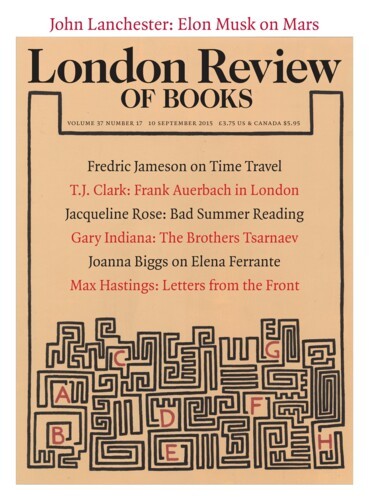I’m old-fashioned enough to think that for something to count as a cult, it should be dark, subterranean and bound up with sacred mysteries. On that definition, Penda’s Fen (1974) may be the only authentic cult TV I’ve come across.
Robert Hanks
Robert Hanks is considering his options.
Fascism in fiction has been in vogue for a while now: the television versions of The Handmaid’s Tale and The Man in the High Castle, Penguin’s republication (on the day of Trump’s inauguration) of Sinclair Lewis’s It Can’t Happen Here, people scurrying to the bookshelves to note all the pre-echoes of Steve Bannon’s politics in Philip Roth’s The Plot against America. I don’t know what emotional need these might-have-beens and could-it-yet-bes serve, unless it’s a version of ferreting around in Nostradamus for strings of words that might be contorted into a prediction of something that’s just happened: things feel more manageable when you can tell yourself that someone saw this coming.
Neoteny
4 May 2016
On Putting Things Off
Robert Hanks, 10 September 2015
When I hear other people talking about procrastination, I find myself getting proprietorial: surely their fleeting pauses are as nothing to mine. Procrastination is the main way I express anxiety and depression, if I can use these medicalised, dignifying terms. It’s franker to say that I put things off because much of the time I’m frightened and sad (too frightened and sad for...
Oh! Mr Porter
9 September 2015
Podcasts & Videos
On Putting Things Off
Robert Hanks
Robert Hanks on the pleasures and pains of putting things off.
Read anywhere with the London Review of Books app, available now from the App Store for Apple devices, Google Play for Android devices and Amazon for your Kindle Fire.
Sign up to our newsletter
For highlights from the latest issue, our archive and the blog, as well as news, events and exclusive promotions.



